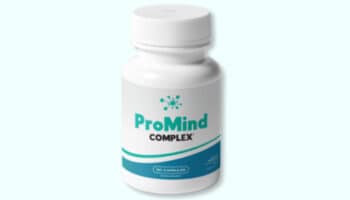It’s no secret that alcohol can have some pretty detrimental effects on the body, but did you know that it can also cause long-term damage to the brain? Studies have shown that heavy alcohol consumption can lead to a decline in cognitive function, and can even increase the risk of developing neurodegenerative diseases like Alzheimer’s and dementia. So if you’re a heavy drinker, it’s important to be aware of the risks associated with your habit and take steps to protect your brain health. To learn more about how alcohol affects the brain, keep reading!

Alcohol Abuse Causes Brain Damage
According to a study conducted by the University of Illinois, our brain is affected by alcohol. The study involved rats that were given alcohol for 3 months and then examined to see the effects of alcohol on their brains.
The results showed that the rats had reduced neuron (nerve cell) counts and damage to the hippocampus. The hippocampus is responsible for memory formation and spatial navigation. Thus, it was concluded that alcohol abuse can cause brain damage.
Other studies have also shown that alcohol abuse can lead to shrinkage of the brain. This is because chronic alcohol abuse leads to inflammation of the brain, which in turn causes the death of brain cells. This shrinkage of the brain can lead to problems with memory, learning, and decision-making.
Alcohol Damages The Brain’s White Matter
A study has shown that long-term exposure to alcohol damages white matter of the brain, which leads to serious cognitive impairments in adults and children alike. This is because white matter consists of nerve fibers that connect different parts of your brain and allow you to process information quickly and efficiently.
However, when these fibers are damaged, it interferes with your ability to learn new things or remember old information. This also slows down your thinking process as well as your reaction time, which can have disastrous consequences if you are behind the wheel of a car or operating heavy machinery at work or home.
Wernicke-Korsakoff Syndrome
Wernicke-Korsakoff syndrome is caused due to thiamine deficiency in patients who drink heavily over long periods of time without eating properly or taking vitamins and minerals like B1 (thiamine). It causes severe brain damage resulting in loss of muscle control, confusion, memory problems, trouble walking, etc., which may lead to death if not treated early on in its course.
Symptoms include; confusion, memory problems, trouble walking, loss of muscle control, seizures, coma, death if left untreated! Wernicke-Korsakoff Syndrome (WKS) is a serious neurological disorder caused by a lack of thiamine (vitamin B1).
People with WKS may experience problems with movement, muscle coordination, vision, and memory. WKS is often seen in people who abuse alcohol or who have chronic alcohol use disorders as the excessive consumption of alcohol can interfere with the absorption of thiamine from the gut.
Alcohol Abuse Can Cause Brain Damage In Children
Alcohol abuse can cause brain damage in children as well. According to a study conducted by the University of California, San Francisco and the University of Washington, alcohol abuse during pregnancy can cause brain damage in children.
The study involved rats that were given alcohol for 3 months and then examined to see the effects of alcohol on their brains. The results showed that the rats had reduced neuron (nerve cell) counts and damage to the hippocampus.
The hippocampus is responsible for memory formation and spatial navigation. Thus, it was concluded that alcohol abuse can cause brain damage in children as well as adults. Pregnant women who drink heavily are putting their unborn babies at risk of death or suffering from birth defects like fetal alcohol syndrome (FAS).
FAS causes mental retardation, facial abnormalities like small eyes and thin upper lip, poor growth, etc., which may lead to death if left untreated! It is estimated that about 1 out of every 100 babies born in the United States has FAS!
Brain Damage And Alcoholism
Alcohol abuse damages the brain’s white matter, which leads to serious cognitive impairments in adults and children alike. This is because white matter consists of nerve fibers that connect different parts of your brain and allow you to process information quickly and efficiently.
However, when these fibers are damaged, it interferes with your ability to learn new things or remember old information. This also slows down your thinking process as well as your reaction time, which can have disastrous consequences if you are behind the wheel of a car or operating heavy machinery at work or home.
So, these were the long-term effects of alcohol on the brain. It is important for people to be aware of these so that they can take necessary precautions and also spread awareness about them. If you or someone you know suffers from any of these problems, please seek help immediately. Alcohol abuse can have severe consequences not just for the individual but also for their loved ones.
You may be interested in :
- Neurodrine Reviews | The Simplest Way To Maintain A Steel Trap Memory
- Further developing Concentration/Memory
- Techniques for Improving Your Memory And Focus
- ReMind Solution Reviews | Supports 6 different indicators of brain performance
- The Brain Booster Reviews | The 3 vital keys to restoring fantastic brain health


